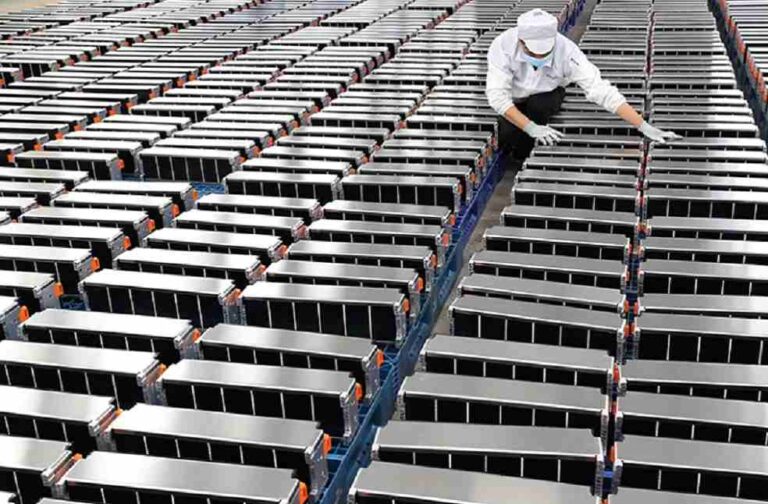Indonesia is set to become an electric vehicle (EV) hub with the launch of Southeast Asia’s first EV battery plant in West Java. The $1.1 billion facility, created by a joint venture between Hyundai and LG, produces nickel-based battery cells mainly for Hyundai subsidiaries in South Korea and India.
At the plant’s opening in July, former President Joko Widodo said the project could position Indonesia as a major player in the EV supply chain. While Indonesia holds the world’s largest nickel reserves, experts note that the country faces challenges with limited processing capacity, environmental concerns, and competition from lithium iron phosphate (LFP) batteries, increasingly used in China.
Indonesia’s EV market trails Thailand, which held 78.7% of Southeast Asia’s market share in early 2023, while Indonesia held 8%. To attract EV manufacturers, the government has introduced incentives, including a luxury goods tax exemption that has spurred major brands like China’s BYD and Vietnam’s VinFast to enter the local market of 280 million consumers.

Policy initiatives include duty-free EV imports until 2025 for companies committed to local production by 2027. Wuling, a Chinese automaker, recently announced plans to begin EV battery production at its Indonesia facility by the end of 2024.
Despite these efforts, Indonesia’s EV battery sector investment remains small. From 2020 to September 2024, $1.3 billion was directed into EV battery production. The new factory still depends on processed nickel imports from South Korea and China due to Indonesia’s limited refining capacity. Environmentalists also highlight the impact of nickel mining on deforestation.
Some analysts argue that Indonesia’s broad EV incentives are ‘not pro-nickel’ since they apply across the industry. However, former official Rachmat Kaimuddin emphasized Indonesia’s large nickel reserves as a unique regional asset.

Industry insiders remain optimistic. PT HLI Green Power’s president director, Hong Woo-pyoung, noted that as infrastructure improves, more battery materials could eventually be sourced locally. This development would support Indonesia’s goal of becoming a self-sustaining EV battery manufacturer.
The Indonesian automotive market, growing at around five percent annually, has seen an increase in EV demand, with over 23,000 battery-powered cars sold to dealers from January to August this year, up from 17,000 in all of 2023. Hyundai’s Indonesian subsidiary chief, Fransiscus Soerjopranoto, affirmed the company’s dedication to support Indonesia’s ambition to become a Southeast Asian EV hub.
NEW LAUNCH | India’s Popular Hatchback Swift Launches ‘Blitz’ Edition





